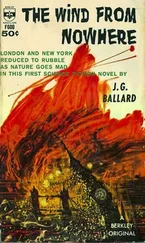Yearly leaned toward Oates, his elbows on his knees. “Now, about them whores. The way I see it, you’ve got three months, Eddie. That’s how long I figure it will be before the Hallecks tire of them. Leastwise, that’s been their pattern with the Indian women they pick up.”
He rose to his feet, crossed to the stove and poured coffee into two cups. He passed one to Oates. “I only put an inch of coffee in there,” he said. “With those hands, I don’t want you scalding yourself.”
Yearly sat, lit his pipe and said through a cloud of blue smoke, “I’ve got a proposition for you, Eddie. You work for me the next three months and I’ll teach you how to shoot. Can you ride a hoss?” The old man saw Oates shake his head. “Teach you that too. If you can ride an’ shoot some, maybe you can meet the Halleck boys on something like level ground. Though I’m making no guarantees, mind.”
Oates looked around the cabin, searching for something that would suggest Yearly’s occupation. A rusty old bear trap hung on the far wall, but apart from that there was nothing. He said, “What do you do, Jacob? You a cattleman?”
“Hell, no, boy. Cowboying is something a man does when he knows he ain’t shaping up for anything else. I cut cinder block out of the side of Black Mountain an’ two, three times a year a Mormon man comes from Silver City with a couple of wagons and hauls them away. He brings me supplies and don’t quibble none, always pays a fair price.”
“What does he do with cinder blocks?” Oates asked.
“He’s never said. I heard tell that folks in Arizona use them to decorate gardens an’ parks an’ sich. But I don’t set much store by that.”
Yearly thumbed a match into flame and relit his pipe. Talking around the stem, he said, “Well, what’s your answer?”
Oates shrugged. “Sure. What have I got to lose?”
The old man smiled. “Eddie, as far as I can tell, not a damned thing.”
Chapter 9
Black Mountain was the northernmost sentinel of the Gila. A mile of hilly, broken ground, thick with sagebrush and piñon, lay between Yearly’s cabin and the rounded bulk of the peak.
The old man had a remuda of three horses penned up in a pole corral, a paint mustang, a rangy buckskin and a Morgan.
After breakfast each morning, he and Oates hitched the Morgan to a wagon and headed for the mountain, where they cut out red and black lava stones with a pick and shovel. The cinder blocks were stacked behind the cabin, and after three weeks of backbreaking labor were already as high as the top of a tall man’s head.
Yearly insisted that Oates take a daily bath in the creek that ran near the house and had him shave off his beard, leaving only a sweeping dragoon mustache that was then fashionable in the West.
Fed on a steady diet of venison stew, bacon and beans and elk steak, Oates put on weight and his shoulders and arms began to show muscle, even as his face thinned into hard, tanned planes.
Yearly was an affable, even-tempered host and employer with an easy way of talking and his rules were few—but for one.
At Oates’ insistence, the old man slept in the cot while he spread his blankets on the floor each night. The door to the cabin’s only bedroom remained locked at all times.
After their return from the mountain one evening, Oates asked him why. Yearly made a display of lighting his pipe, playing for time as he searched his mind for the right words. Finally he said, “That room is . . . well, it’s special to me. I don’t want anyone going in there. I don’t go in there myself.”
“Keep your treasure in there, huh, Jacob?” Oates joshed. He removed one of the oversized shoes the old man had given him and rubbed his aching foot.
“You could say that. I keep memories in there that are precious to me.”
“A woman?”
“No, not a woman.”
Oates placed a shoe on the floor, then removed the other. “That narrows it down,” he said.
Yearly said nothing. Again he made a show with his pipe as a rising night wind rustled around the eaves of the cabin, but for a while only an empty silence stretched between him and Oates.
Finally he said, “Eddie, what’s it been, a month? And already I see a difference in you as the whiskey greed has left. I think you’ve come so far because you’re still a young man and not too old for change. But you still have a ways to go, a long ways.”
The old man waved a hand toward the bedroom. “Maybe one day I’ll show you what’s behind that door, but not today. And not tomorrow or the day after that.”
Oates didn’t push it. He slipped his feet into his shoes and said, “I’ll go check on the Morgan.”
“We won’t need the Morgan tomorrow,” Yearly said.
“How come? We still have lava block to move back to the house.”
“I know, but tomorrow I’m going to teach you to shoot.”
Eddie Oates hefted the unfamiliar weight of the .44 Colt and looked out over the mesquite flats. “How about that dead cedar near the creek, Jacob?”
“Hell, boy, that’s a fair piece. If a man draws down on you from there, you got plenty of room to cut an’ run.” He stepped toward the cedar and Oates followed. When they were ten feet from the tree he stopped.
“You’ll shoot from here.” Yearly noted the puzzled look on the younger man’s face and said patiently, “Revolver fighters like Clem Halleck will come at you up close an’ real personal, especially them as makes fancy moves, skinning the iron fast like he does.
“You shoot the way I’m going to show you and you’ll kill your man every time. Don’t rush it, Eddie, and aim for the belly. Now, go to it.”
As Yearly had demonstrated, Oates took up a duelist’s stance, the inside of his left foot against his right heel, the Colt held out straight in front of him.
“Thumb back the hammer, boy, then cut ’er loose.”
The triple click of the Colt’s hammer was loud in the cool, red-tinted stillness of the morning. Oates squeezed the trigger.
The revolver roared and bucked and the bullet splintered wood dead center from the cedar’s trunk.
“Shoot her dry, boy.”
Oates did as he was told, firing until the hammer clicked on a spent cartridge. He’d fired five shots at the tree and had scored five hits.
Turning in a drifting gray cloud of gunsmoke, Oates looked at Yearly and grinned. “I’d say that was pretty good.”
“I’d say the tree wasn’t shooting back at you.”
The old man reached into the pocket of the old army greatcoat he wore on cool mornings and passed a cardboard box to Oates. “There’s fifty cartridges. It’s old stuff that’s been lying around for years and it’s a mite uncertain, but it’s fine for practice. Shoot ’em all and let me see fifty hits on the tree. Cut it down if you can because I’m sick of looking at it.”
Yearly turned on his heel and started back to the cabin. “Where you going, Jacob?”
“For coffee. You can come get yours when all the cartridges are gone.” The old man stopped and turned. “There are Apaches around this morning, Eddie, so step careful.”
Oates swallowed the lump in his throat and managed to croak, “Wha . . .”
But Yearly was already out of earshot.
Oates’ mind was not on his target practice and he turned his head constantly for any sign of Apaches. He saw nothing, though every time jays quarreled in the piñons or a jackrabbit bounded across the flat, he jumped.
Despite his unease and the poor quality of his ammunition, which produced a number of duds and fliers, he hit the cedar nearly twoscore times.
Then he lit a shuck for the cabin, his shoes, fitted to Yearly, a much bigger man, flopping and slapping on his feet.
When he ran inside, the old man was sitting in his chair by the fire, smoking his pipe, a volume by Sir Walter Scott in his hands.
Читать дальше












